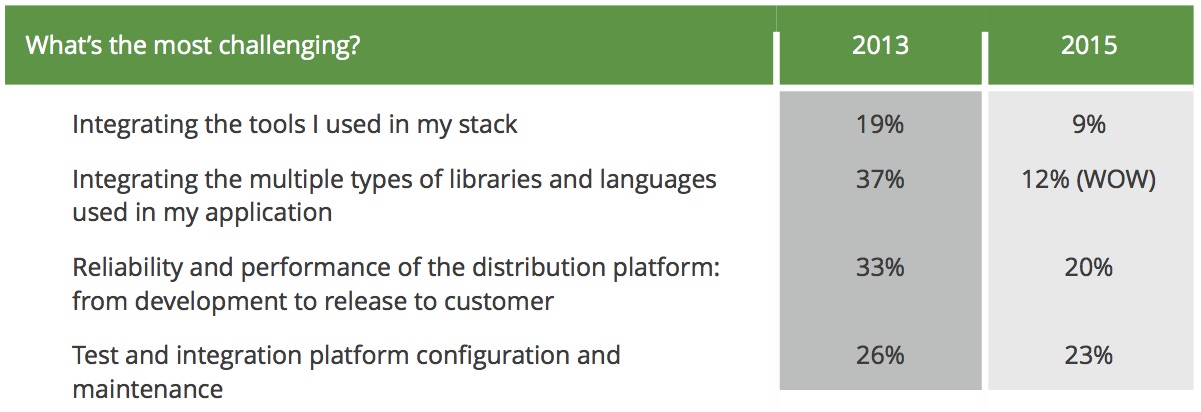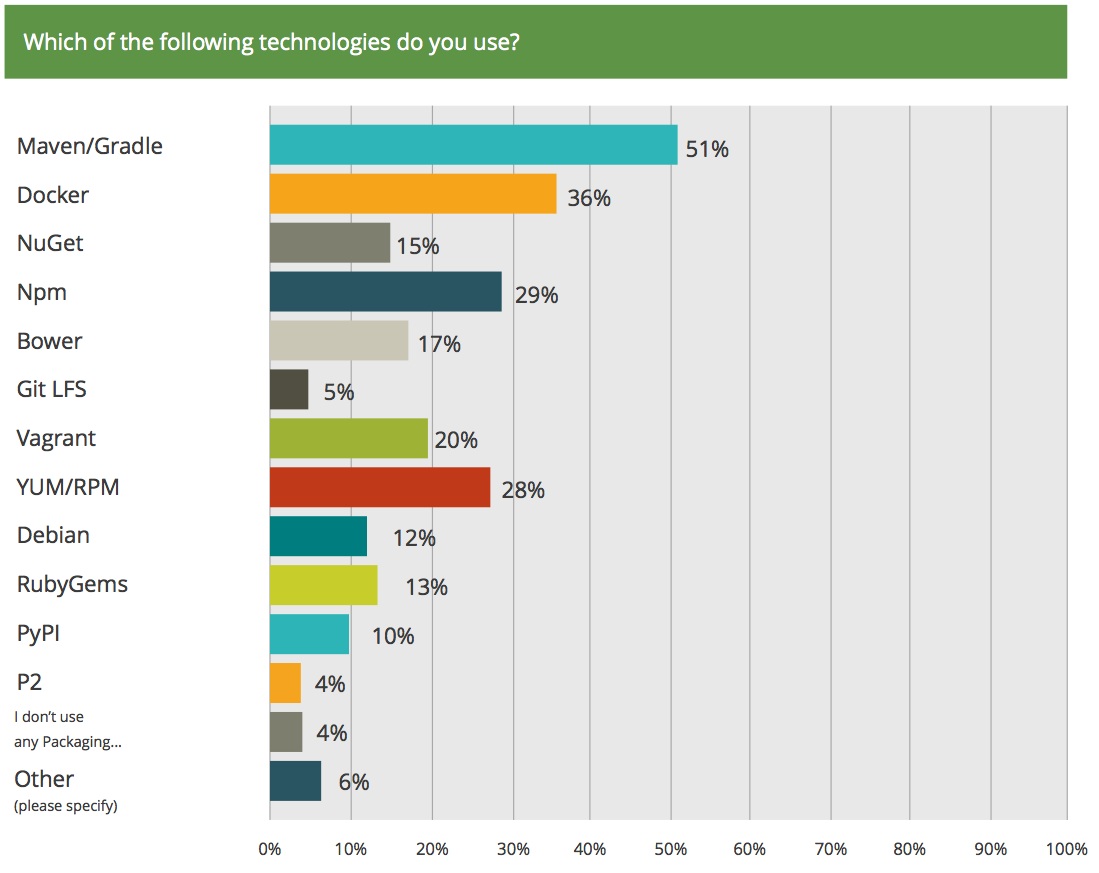Opsera announced that two new patents have been issued for its Unified DevOps Platform, now totaling nine patents issued for the cloud-native DevOps Platform.
The advent of DevOps has completely changed the way we build and deliver software and, inevitably, creates unique challenges for developers juggling a wide range of tools successfully. JFrog recently conducted a survey to gain insights into how developers and DevOps engineers use different tools and technologies and the challenges they encounter in their daily work. Upon comparing these findings to those of a similar survey conducted in 2013, things seem to be getting better for developers and DevOps, but the advances are not evenly distributed, as some areas have seen dramatic improvements while others have remained relatively stable.
The survey drew in over 1,000 responses from more than 50 countries, the majority coming from the US (45 percent) and Europe (25 percent). Nine different industry sectors were significantly represented, the dominant ones being telecommunications, technology, Internet and electronics, and finance and financial services.
Combining Multiple Technologies is Getting Easier
The most dramatic finding was that integrating multiple types of libraries and languages, which has long been a serious pain point for developers, has become much easier over the last two years. The number of developers who identified this as the most challenging task dropped from 37 percent in 2013 to 12 percent in 2015. This clearly shows that using multiple types of platforms and technologies, even in a single application, is the new norm.

Developer Productivity is Increasing
Developers reported a decrease in “very time consuming” non-development tasks across the board. The most striking result is the decrease in the number of developers complaining about waiting during build and test time, as the automation of continuous delivery pipelines makes them more efficient.

Last Minute Code Changes Are Not Going Away
Last minute code changes remain the number one reason for release delays, but progress is being made in reducing their negative impact with automated continuous delivery pipelines, which shorten release cycles and thus enable teams to better react to sudden changes.

Celebrating Diversity
One of the clearest and most significant findings in the survey is that developers and DevOps engineers are using more and more development technologies in their daily work, with some using as many as six or seven different formats simultaneously. An overwhelming 76 percent of respondents used more than one development and packaging technology in their most recent project. This was especially true for Docker users, 91 percent of whom indicated that they use two or more technologies and 27 percent using six technologies at a time.

All in all, developer productivity is increasing, especially when it comes to automated continuous delivery pipelines and integrating multiple technology platforms. This finding supports Forrester’s claim that continuous delivery pipelines are the primary means by which organizations achieve rapid software delivery cycles.
Baruch Sadogursky is the Developer Advocate at JFrog.
Industry News
mabl announced the addition of mobile application testing to its platform.
Spectro Cloud announced the achievement of a new Amazon Web Services (AWS) Competency designation.
GitLab announced the general availability of GitLab Duo Chat.
SmartBear announced a new version of its API design and documentation tool, SwaggerHub, integrating Stoplight’s API open source tools.
Red Hat announced updates to Red Hat Trusted Software Supply Chain.
Tricentis announced the latest update to the company’s AI offerings with the launch of Tricentis Copilot, a suite of solutions leveraging generative AI to enhance productivity throughout the entire testing lifecycle.
CIQ launched fully supported, upstream stable kernels for Rocky Linux via the CIQ Enterprise Linux Platform, providing enhanced performance, hardware compatibility and security.
Redgate launched an enterprise version of its database monitoring tool, providing a range of new features to address the challenges of scale and complexity faced by larger organizations.
Snyk announced the expansion of its current partnership with Google Cloud to advance secure code generated by Google Cloud’s generative-AI-powered collaborator service, Gemini Code Assist.
Kong announced the commercial availability of Kong Konnect Dedicated Cloud Gateways on Amazon Web Services (AWS).
Pegasystems announced the general availability of Pega Infinity ’24.1™.
Sylabs announces the launch of a new certification focusing on the Singularity container platform.
OpenText™ announced Cloud Editions (CE) 24.2, including OpenText DevOps Cloud and OpenText™ DevOps Aviator.
Postman announced its acquisition of Orbit, the community growth platform for developer companies.




